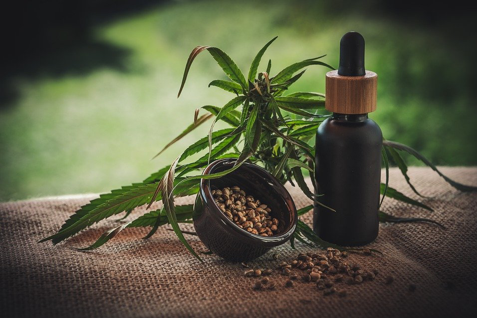

Depression is a mental disorder that continues to confound scientists and medical researchers. While it affects around 264 million people around the world, with women more commonly impacted than men, numerous different causes have been identified, and various treatments have been proposed, with varying degrees of success.
Ranging from behavioral therapies through to medicines, what works for one individual will not necessarily work for all, meaning there is a constant drive to develop new and improved treatments.
Now, according to a study carried out in 2018 (the results of which have recently been published) cannabidiol may represent another option to explore. With the data so far appearing promising, could it be that this underutilized substance offers a powerful new treatment for those affected by depression?
What is cannabidiol?
Also known as CBD, cannabidiol is a natural compound that has frequently been touted as a wonder drug in recent years. Based on both anecdotal evidence and a growing body of research into its potential uses, a lot of people are convinced that it offers an array of untapped health benefits.
According to two studies (one conducted in 2014 and a second performed in 2018), these may include the treatment of depression. Long believed to have antianxiety, antipsychotic, and antidepressant properties, CBD is similar to cannabis but non-intoxicating - a topic you can read more about online. This means that while the two compounds are similar, their effect on the human body is different, with CBD not delivering the same feelings of euphoria as the drug. Another important distinction to keep in mind is the difference between Cannabis Sativa and Cannabis Indica plants.
Using CBD to treat depression
While further research needs to be done before any firm conclusions can be drawn, CBD has recently been shown to have some potential for treating depression and other anxiety disorders. Numbering among the most common mental health conditions, these affect millions of people across the globe.
Depression and anxiety often have a significant impact on everyday living, with sufferers frequently reporting that they negatively affect everything from their health to their career, social life, and overall sense of wellbeing. In some instances, this can be debilitating, leaving those affected unable to work or leave their homes.
This is why doctors often turn to pharmaceutical remedies to help make sufferers feel more functional but, unfortunately, many of these come with side effects, from mood swings through to insomnia and sexual dysfunction.
As a result, medical researchers are always looking to discover new and better solutions, and CBD has shown promise in two preliminary studies so far, one conducted in 2014 and the other in 2018.
A promising alternative
The initial research from 2014 indicated that CBD appeared to have a positive interaction with serotonin receptors in the brain. Since they impact a range of functions in the body - including an individual's emotional state and overall happiness - rebalancing these receptors is often key to treating people who are suffering from depression.
The more recent study, conducted in 2018, further revealed that cannabidiol has a clear anti-stress effect on animal subjects, with the compound functioning as a fast-acting antidepressant even after short-term use.
While researchers were clear that additional human studies would need to be conducted before these results could be seen as conclusive, this nonetheless suggests that CBD oil tenure and its effect on depressive disorders is well worth looking into.
© 2026 ScienceTimes.com All rights reserved. Do not reproduce without permission. The window to the world of Science Times.










